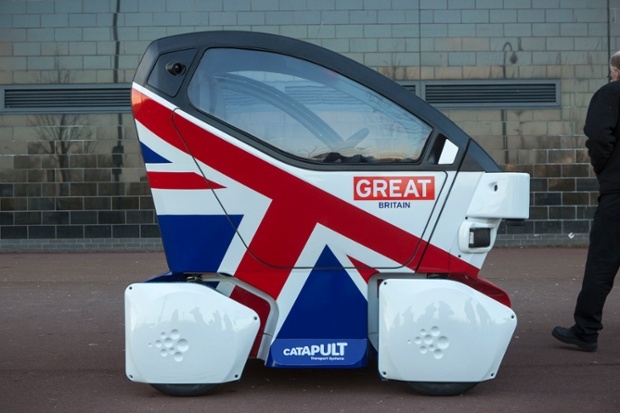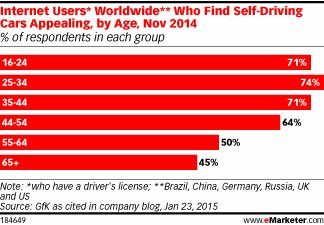by Benson Agoha | Woolwich | @bensonagoha
As driverless car trials got under way in the UK, the Royal Borough of Greenwich being one of the test locations approved by the government, questions to which answers are being saught include whether drivers are ready for the implications of what might be a new technological revolution. In what other ways will this impact on local business?
 |
| Prototype of a Self-driving car as trials begin in Royal Greenwich on Wednesday, February 11, 2015. (Photo Credit: Guardian) |
Think of the arrival of Uber app. It met with stiff resistance from the local Black Cab drivers who promptly blocked access city routes in protest, fearing that Uber represented a verital threat to their business. Thankfully, the smartphone for taxi sharing survived the resistance to remain in operation in Britain.
In a recent conversation, with a trio of city workers, we ruminated whether Uber should survive or be stopped. As usual after considering the arguments of both sides, no decisive stance was taken and we said good night with a smile.
Uber is an app that impacts on people in different ways and only experience enables you appreciate or criticise. But look at the experience of this author.
Stranded in Dartford (anyone who knows Dartford will know what I mean, although rumour has it that plans are afoot to change things in the Kent town) where there is no known hotel or bnb or even a 24hr public restaurant or club, that can keep you going till the trains start in the morning, we had no choice and no hope. We had no money, the purse having been lost.
But we had our smart phones and one of us had used Uber before. Getting service in Dartford was the next challenge, but in the end, there was a flicker and the app was used to hail a taxi. It responded shortly that one was on its way and wold be with us in 13 minutes. We waited.
In between our wait, numerous station (Black Cab) taxis approached. They would take us to London if we have MONEY. We had no money. Ok, they would take us IF we had MONEY at HOME. There was no such assurance. So, they did not take us.
Uber steps in at times like this, when the Black Cab or any other taxi would not be available. And one did arrive as the app said, took us as expected, and explained he was on his way to somewhere else when, fiddling with his Uber phone, he saw our request.
When he dropped us off, he did not wait for money. He simply drove off. Job done, it would be taken from the account and the bill is settled.
Those who criticize Uber, would need to experience it to continue. And although some drivers are trying to attract public discredit, it seems that Uber's success is testament to it's ability to serve it's nitch market.
Uber has announced plans to invest in its own drivers car trials, almost setting it on collision cause with Google, whose trials have reached advanced stage. But one thing that is even more important to the local economy is driverless cars potential to create a whole new industry.
Analysts believe that one of the positive effects of the arrival of Driverless cars on our shores, is that Smartphone car app sales will speed up through 2020.
The question is, are fears about self-driving cars subsiding as more emerge? Well according to e-Marketer, based on November 2014 GfK polling, the answer is yes, because two-thirds of consumers, with drivers licenses polled worldwide said self-driving cars were appealing.
Unfortunately, Britain was not among the countries polled. But as you would see from the following graph, 71% of people in the age range of 16-24 thought it was appealing. The highest or most optimistic (74%) were people in the age bracket of 25-34.

Just look at it closely: older millennials, 25- to 34-year-olds, were most interested in self-driving cars, with nearly three-quarters finding the concept appealing. Still impressive, over seven in 10 from the 16-to-24 and 35-to-44 age groups viewed self-driving cars appealing, as did almost two-thirds of 44-to-54-year-old licensed drivers and even half of 55- to 64-year-olds. The 65-and-older group was the only bracket where the majority weren't interested.
Simply put the active population love self-driving or driverless cars. But it does not end there, because love and practicality are two different things. One thing is certain though. Driverless cars on our roads may hold implications, similar to light overhead flying crafts, as our part two of this will show.
To be continued...

No comments:
Post a Comment